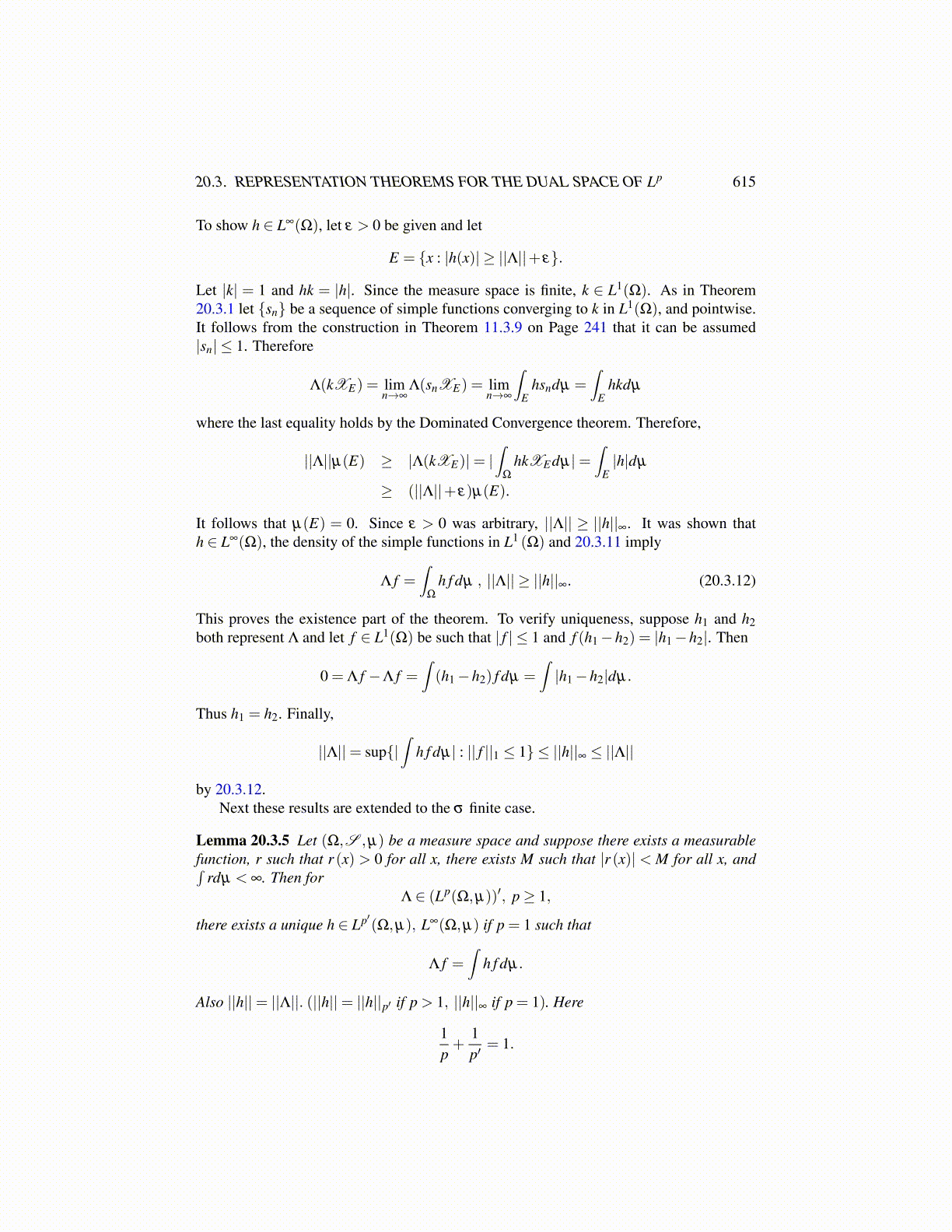
20.3. REPRESENTATION THEOREMS FOR THE DUAL SPACE OF Lp 615
To show h ∈ L∞(Ω), let ε > 0 be given and let
E = {x : |h(x)| ≥ ||Λ||+ ε}.
Let |k| = 1 and hk = |h|. Since the measure space is finite, k ∈ L1(Ω). As in Theorem20.3.1 let {sn} be a sequence of simple functions converging to k in L1(Ω), and pointwise.It follows from the construction in Theorem 11.3.9 on Page 241 that it can be assumed|sn| ≤ 1. Therefore
Λ(kXE) = limn→∞
Λ(snXE) = limn→∞
∫E
hsndµ =∫
Ehkdµ
where the last equality holds by the Dominated Convergence theorem. Therefore,
||Λ||µ(E) ≥ |Λ(kXE)|= |∫
Ω
hkXEdµ|=∫
E|h|dµ
≥ (||Λ||+ ε)µ(E).
It follows that µ(E) = 0. Since ε > 0 was arbitrary, ||Λ|| ≥ ||h||∞. It was shown thath ∈ L∞(Ω), the density of the simple functions in L1 (Ω) and 20.3.11 imply
Λ f =∫
Ω
h f dµ , ||Λ|| ≥ ||h||∞. (20.3.12)
This proves the existence part of the theorem. To verify uniqueness, suppose h1 and h2both represent Λ and let f ∈ L1(Ω) be such that | f | ≤ 1 and f (h1−h2) = |h1−h2|. Then
0 = Λ f −Λ f =∫(h1−h2) f dµ =
∫|h1−h2|dµ.
Thus h1 = h2. Finally,
||Λ||= sup{|∫
h f dµ| : || f ||1 ≤ 1} ≤ ||h||∞ ≤ ||Λ||
by 20.3.12.Next these results are extended to the σ finite case.
Lemma 20.3.5 Let (Ω,S ,µ) be a measure space and suppose there exists a measurablefunction, r such that r (x) > 0 for all x, there exists M such that |r (x)| < M for all x, and∫
rdµ < ∞. Then forΛ ∈ (Lp(Ω,µ))′, p≥ 1,
there exists a unique h ∈ Lp′(Ω,µ), L∞(Ω,µ) if p = 1 such that
Λ f =∫
h f dµ.
Also ||h||= ||Λ||. (||h||= ||h||p′ if p > 1, ||h||∞ if p = 1). Here
1p+
1p′
= 1.